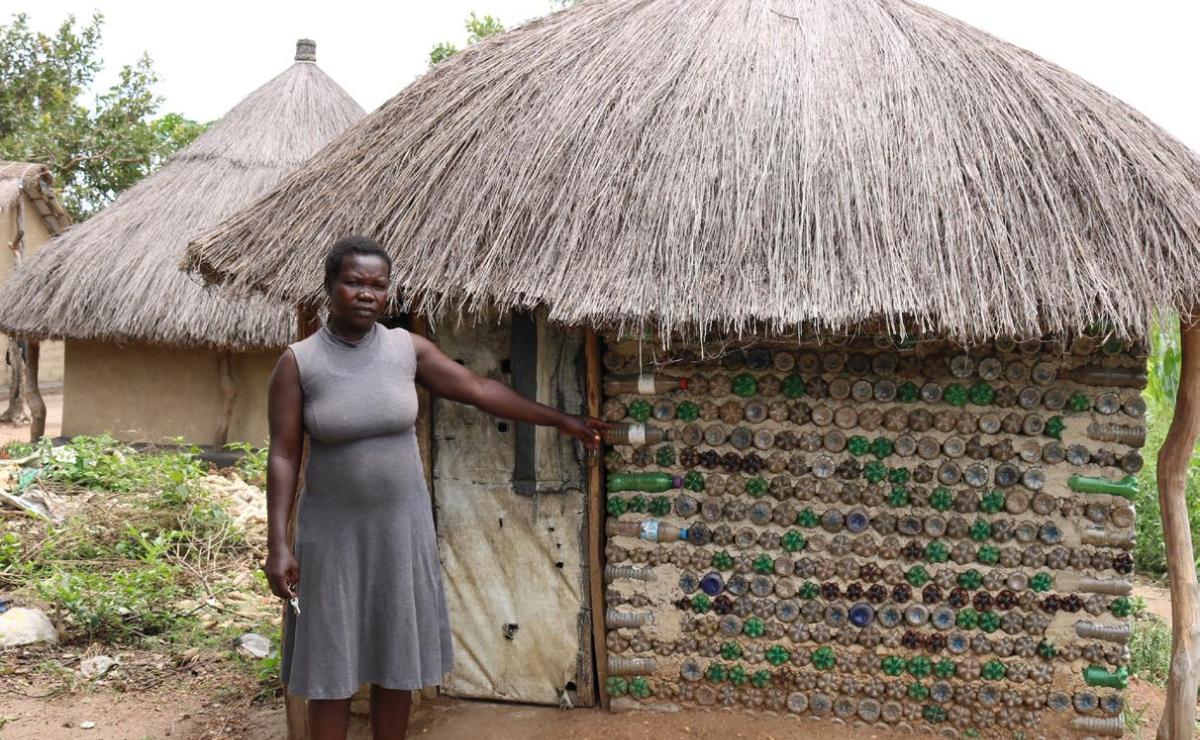House construction with plastic reduces solid waste in settlements

With over a 1.5million refugees hosted in Uganda, there is increased degradation of soils, water, and tree cover, leading to several irreparable damages.This takes the form of waste, such as plastics littered in gardens, water points, and homesteads,thus affecting crop yields, water flow, and dirty environments.
The National Environment Management Authority (NEMA) estimates 600 tons of plastic are disposed of in Uganda daily, including refugee settlements. Under the approach, Ms Getrude Laker, a Project Assistant in Palabek settlement, says, "Plastic bottles are treated as building block materials similar to bricks."
Ms Laker explains that the plastic bottles for sodas and mineral water of the same size are collected from different areas in the community like marketplaces and reception centres before they are manually compacted with dry sand as a filler material.
"We identify members who are interested in volunteering on the solid waste management committees and train them to separate the plastic bottles from other decomposing waste," Ms Laker adds, saying, "these transfer the knowledge to other people of concern in the same communities."
LWF staff then identifies local masons in the settlements and trains them to make and build plastic bricks. The latter has gained a livelihood as communities hire them to build their houses with plastic bricks.
Community members who have used the plastic bricks acknowledged that they have secondary economic gains, making it more feasible than the ordinary semi-structured shelters built with bamboo, mud bricks, and plastic sheets, which are highly flammable.
"The toilet built with bottles is cheaper than the one made with cement and bricks. For example, the bag of cement costs Shs30,000(about$8), yet these bottles are free, "Mr Elineo Oduor, a refugee in Palabek settlement, states."The bricks are also expensive, yet in case of rain, the risk of damage or destruction is higher,"Mr Oduor adds.
"The plastic bricks also don't attract flies in her toilet and make it look neat," Ms Esther Agal, another refugee in Palabek settlement, notes. "Whenever I saw the wall bottles, I wished it was in my home. I am so happy to have one," Ms Agal adds.

Like the Palabek settlement case, LWF constructed a demonstration block in the Kyangwali settlement to train more refugees in utilising the generated Plastics into construction materials. The initiative has proved effective in reducing plastic waste and encouraging recycling for resilience and livelihoods.
"Market places, food distribution and reception centres were the most affected places, but you can hardly get any plastic bottles of late," Mr Spiridon Atukunda, the Wash Officer, confirms.
-END-

